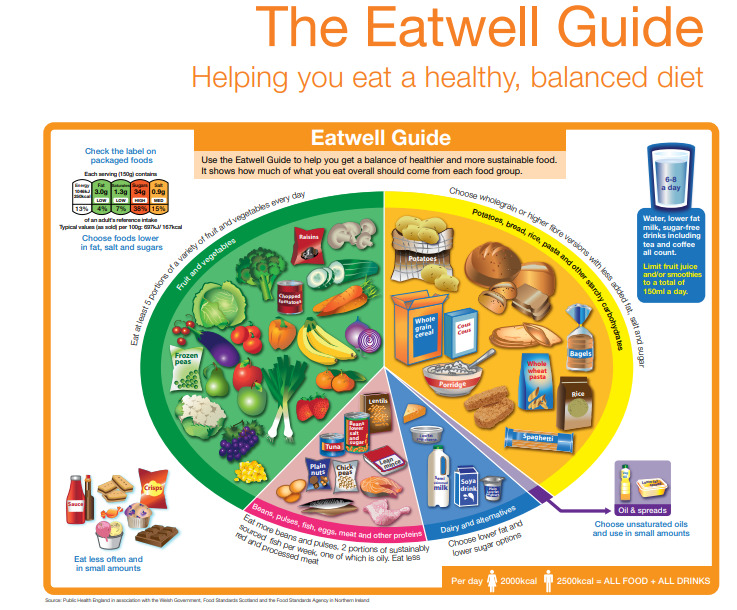Nutritional Support
Ensuring that patients are supported to get their nutrition right for them is important. In this section we offer advice and guidance on nutrition to help patients meet their dietary needs at home, collated content and links that are available that to form part of our universal prehabilitation offer, to patients to consider and plan their nutritional needs prior to their first treatment.
Evidence shows there is an impact of poor nutrition on outcomes and patients with cancer are at particularly considerable risk of malnutrition because both the disease and its treatments threaten their nutritional status. People who are underweight and are unintentionally losing weight have an increased risk of poorer outcomes, mortality, length of stay, greater healthcare needs, risk of surgical site infections, and quality of life from cancer treatment.
This webinar is created by specialist NHS Macmillan dietitians and an expert dietetic assistant practitioner and gives dietary guidance to patients who have completed their cancer treatment. It covers the links between diet and cancer, eating well for good health and looks at the truth behind some dietary myths.
Cancer Nutrition Advice
Since your diagnosis you may have had several thoughts about food. What should I be eating?What foods could help my treatment?Are there any foods I should be avoiding? Alternatively, you may not have had the time to consider what and how you are eating. The most important message is to continue to eat well. Choosing a wide variety of foods and well-balanced meals can help you feel better and optimise your energy levels. Trying to lose weight is generally not encouraged. If you are overweight and have been advised to do so this should be under close supervision by a healthcare professional due to the risks of muscle wasting and loss of strength. If you are having problems with your appetite inform your nutrition specialist and they will sign-post you to further advice and support.
Managing Malnutrition
Useful Supporting Information
There are a range of handouts that may be helpful.
-
The Eatwell Guide
-
British Dietetic Association – Food Fact Sheet – Portion sizes
-
Healthy Eating and Cancer – Macmillan Cancer Support
-
Eating Problems and Cancer – Macmillan Cancer Support
-
The Building-up diet – Macmillan Cancer Support
Some useful links:
-
NHS BMI Calculator
-
Worried about weight loss
-
NHS Weight Loss Plan
-
Macmillan Cancer Support
-
Drink Aware
-
British Heart Foundation Portion Size Guide
Calorie Boosting Nutritional Guidance and Support

Healthy Recipes - World Cancer Research Fund
Nutritionists from the World Cancer Research Fund have created a range of tasty recipes using their scientific expertise in preventing cancer, on their website is a wide range of tasty suggestions for everyone, they have provided healthy tips and expert advice for people with cancer and a range of recipe books that can be posted out to you for free.
Their recipes cover main meals, salads and snacks, suggestions for puddings and breakfasts are also included.
Glossary
Carbohydrates
Ensure starchy carbohydrates are included in each meal or snack. Examples of these are; cereals, bread, potatoes, rice, chapattis and pasta. They provide your body with energy, fibre, vitamins and minerals. Exercising muscles rely on carbohydrate as their main source of energy.
Dairy
Aim to eat 2-3 portions of dairy or dairy alternatives a day. These include yoghurt, milk / soy milk and cheese. They are an important source of protein, calcium and vitamins.
Protein, Vitamins & Minerals
Eat at least 2 portions of meat, fish, eggs, beans or plant based proteins a day. These include chicken, fish, eggs, pulses, beans, lentils, nuts and vegetarian alternatives such as Quorn and tofu. Aim to eat two portions of fish a week, one of which should be oily. These are an important source of protein, vitamins and minerals such as iron.
Fruit & Vegetables
Have at least 5 portions of a variety of fruit and vegetables per day. This includes fresh, frozen, canned and dried fruit and vegetables. They provide your body with important vitamins and minerals, and are a reliable source of fibre to keep your bowels moving regularly.
High in Fat & Sugar
Food and drinks high in fat and/or sugar should be eaten in small quantities only. These include butter, margarine, oil, cream, cakes, biscuits, sweets and soft drinks which are higher in calories but lower in protein and vitamins and minerals than other food groups.
Exercising and Nutrition
A low fat, high carbohydrate snack or light meal should be eaten 90 minutes to 2 hours before exercise to ensure you have enough energy for the activity. e.g. – a bowl of pasta, banana on toast, beans on toast, boiled egg with bread / toast, cottage cheese with jacket potato. You should eat a snack after exercising to replenish your energy stores.
Post-exercise Meal/Snack
Protein is needed for building and repairing muscles. The addition of protein to a post-exercise meal or snack can help muscle repair and recovery. Examples are eggs with toast, beans on jacket potato, homous and pitta bread, milk, yoghurt, nuts and seeds.
Dehydration affects both physical & mental performance
It is important to drink plenty of fluids to support hydration. As a minimum aim to drink 6-8 cups of fluid including water, every day.
If you are exercising at a moderate intensity it is important to drink plenty of fluids during and after to restore hydration levels and replace the water and salts lost in sweating.

